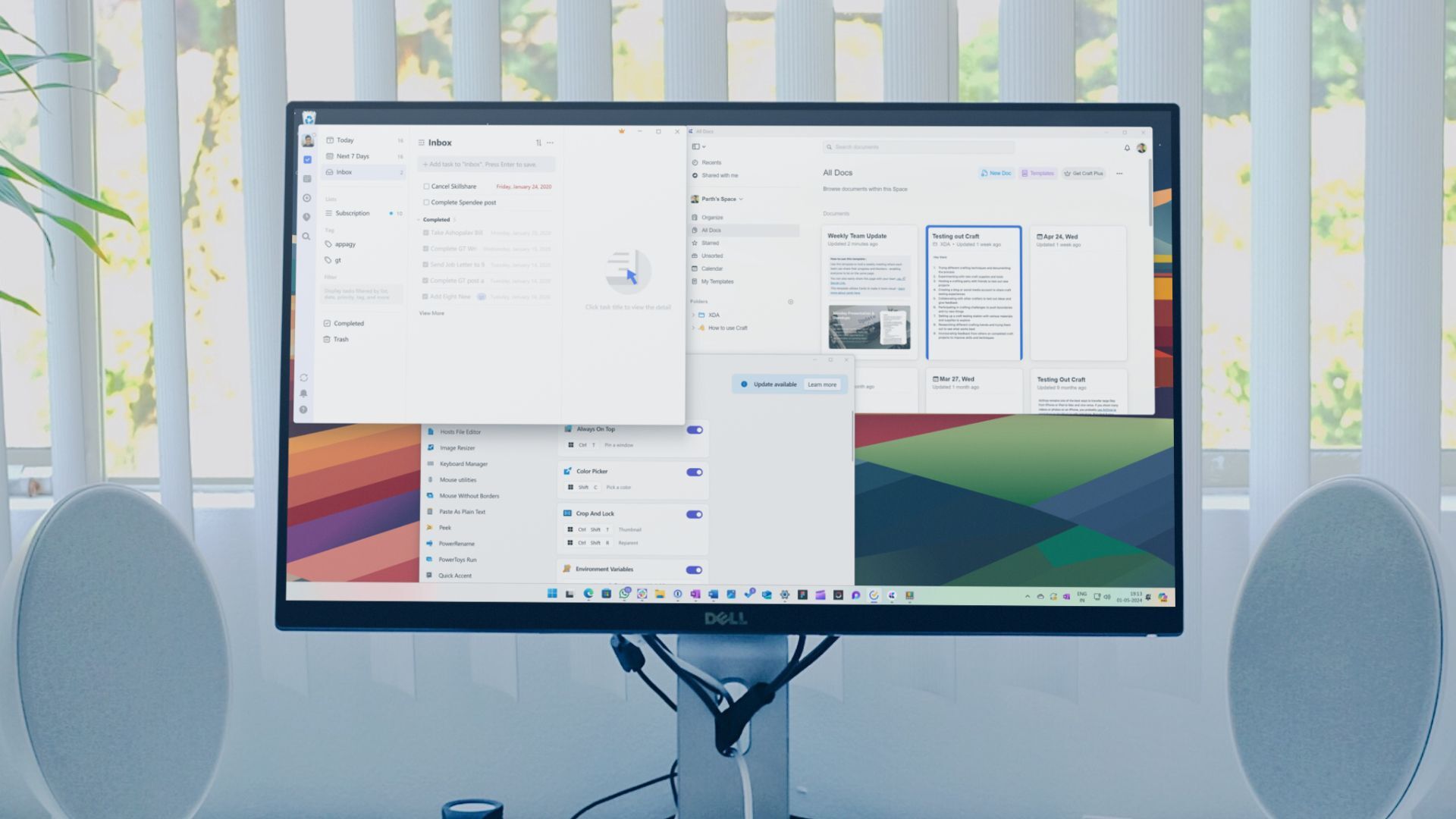Note that these are not all FOSS.
-
Photo Editing:
- GIMP
- Krita
- Paint.NET
-
Video Editing:
- DaVinci Resolve
- CapCut
- Shotcut
-
Audio Editing:
- Audacity
- Cakewalk
- GarageBand
-
3D Graphics:
- Blender
- Spline
- Rumba
-
Office Software:
- LibreOffice
- Microsoft 365 Free Apps
- WPS Office
-
Antivirus Software:
- Windows Security
- Avast Free Antivirus
- Malwarebytes
-
Productivity Tools:
- Bitwarden
- VSCodium
- PDF-XChange Editor
- 7-Zip
- OBS Studio
- LanguageTool
Avast? Bruh
I always recommend Windows Defender and a good sense of Internet security to anyone who uses a computer.
If you’re dumb, no antivirus can protect you. If you’re reasonably intelligent, any antivirus will protect you.
Avast should not be recommended.
In late 2019, Avast browser extensions were found to collect user data, including browsing behavior and history, and send it to a remote server. The discovery led to the extensions of the Avast and AVG brands being temporarily removed from the Google Chrome, Firefox and Opera extension stores, however, they returned a short time later as there was no concrete evidence that demonstrated a breach of private data of the users.
In January 2020, a joint investigation by Motherboard and PCMag found that the Avast Antivirus and AVG AntiVirus Free version were collecting user data, which was being resold to personalize advertising through a subsidiary, Jumpshot. The leaked documents showed that Jumpshot offered to provide its customers with “Every search. Every click. On every site.” from more than 100 million compromised devices. In response, Avast announced on January 30, 2020, that it would immediately shut down Jumpshot and cease all operations due to the backlash of its users’ data privacy.
On the basis of the information revealed, on 11 February 2020 the Czech Office for Personal Data Protection announced that it had initiated a preliminary investigation.
In February 2024, the Federal Trade Commission fined Avast $16.5 million for collecting user data and reselling that data. The collection was done under their program to ensure that such collection of user data was not happening.
Blender is hardly an alternative, it’s the clear #1
Avast is virus itself
Yeah, just use the one built-in to Windows, or don’t use Windows.
I recommend Okular for PDF reading. No ads, no upsells, no BS. It also has native dark mode
Gwenview has always worked well for me.
*Tenacity, not Audacity
I only discovered Krita recently, but holy shit does it fill the Photoshop void very well. The UI isn’t the same as PS, obviously. But I find it much easier to navigate than Gimp’s UI. And Krita is surprisingly feature-rich.
If you don’t mind paid, Affinity is pretty nice too.
Didn’t they recently get bought by Canva? Not saying that’s a good or bad thing, but it’s something to keep in mind.
Yeah but it’s also a one time purchase
…for now.
2D/3D Simulation/Game creation Godot :)
you forgot linux as an alternative to windows and mac;)
Take CapCut off because it’s more like TikTok editing than video editing.
Divinci has a learning curve but any curve is better than learning solely on a ByteDance owned product.
also, davinci is industry standard and highly respected
Reminder than Tenacity is an open-source fork of Audacity.
Audacity isn’t open source? I thought I installed it from the Debian free repo…
It is open source, but had some controversy. Most prominently the addition of telemetry a few years ago, which was never included in the builds managed by Debian or most other distro maintainers. They also added a Contributor License Agreement which lets the Audacity project change its own license (even to a non-foss one, though they promise they won’t) without needing to have the change approved by any individual developers.
Ah, monkey business…
I’d like to add OpenShot to the video editing category
You forgot vector-graphics stuff.
I believe Inkscape is the current leader of the open-source pack in that department.
These are alternatives? This is essentially a list of software that I use.
Photo Editing: Gimp
I found “Darktable” so much more useful.
They serve completely different purposes.
I use Darktable for adjusting brightness, color, contrast, etc. and Gimp for actual editing (selection tools, brushes, filters, effects, etc.)I think you’re underselling Darktable somewhat. Being able to use drawn and parametric masks for basically all the tools, and the granularity at which you can adjust the variables across the entire image makes it incredibly powerful for non-destructive editing of photos. There are also numerous filters and tools which can be used artistically.
But yes, for “photo-shopping” as opposed to photo editing you probably will want GIMP as well.
I have tried for very long time to do exactly what you describe here, without much success. Gimp was soo inconvenient to use.
Darktable is built for efficiency, like “Do these favorite filters on every picture at startup” or “Repeat my last editing steps on these 25 photos”
OnlyOffice for office software.














